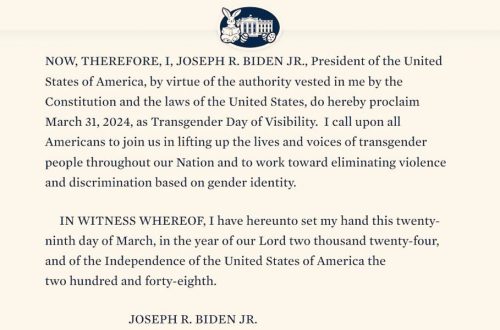 Last week, Donna Freitas had a column in the Wall Street Journal about a dating survey she conducted of over 2,500 college students. The students who answered the survey were overwhelmingly assimilated into the “hook up” culture that exists on so many college campuses. She writes:
Last week, Donna Freitas had a column in the Wall Street Journal about a dating survey she conducted of over 2,500 college students. The students who answered the survey were overwhelmingly assimilated into the “hook up” culture that exists on so many college campuses. She writes:
‘I found that among those who reported “hooking up” — a range of sexually intimate acts, from kissing to intercourse, that occur outside a committed relationship — at Catholic and nonreligious private and public colleges and universities, 41% are profoundly upset about their behavior. The 22% of respondents who chose to describe a hook-up experience (the question was optional) used words like “dirty,” “used,” “regretful,” “empty,” “miserable,” “disgusted,” “ashamed,” “duped” and “abused” in their answers. An additional 23% expressed ambivalence about hooking up, and the remaining 36% were more or less “fine” with it. And 45% of students at Catholic and 36% at nonreligious private and public schools say that their peers are too casual about sex. Not a single person at these schools said that their peers valued saving sex for marriage, and only 7% said that they felt that their friends wanted to reserve sex for committed, loving relationships.’
So even though the students who were surveyed practiced a promiscuous sexual ethic, many of them regretted it. Freitas also describes teaching a course at Boston University in which she had the students study a book on modesty and some evangelical “dating” books. The results were surprising:
‘When last semester I taught Wendy Shalit’s “A Return to Modesty,” in a class at Boston University called “Spirituality & Sexuality in American Youth Culture,” I assumed that my mostly left-leaning students would reject her arguments about the terrible effects that the hook-up culture has on young women and the positive effects of traditional religion and morality on young women’s well-being. Instead, my students ate up her critique and were fascinated by her descriptions of modesty as a virtue, especially within the context of faith. One student said that she felt empowered to stop tolerating vulgar remarks about sex made by peers in her presence.
‘The class was equally attracted to some evangelical dating manuals, like “I Kissed Dating Goodbye” by Joshua Harris and “Real Sex” by Lauren Winner, that I asked them to read. They seemed shocked that somewhere in America there are entire communities of people their age who really do “save themselves” until marriage, who engage in old-fashioned dating with flowers and dinner and maybe a kiss goodnight. They reacted as if these authors describe a wonderful fantasy land. “It would be easier just to have sex with someone than ask them out on a real date,” one student said, half-seriously.’
Freitas concludes with an exhortation to parents who are contemplating which school to send their children to. She argues that the culture of a campus in large part determines dating mores and that parents should be aware of what they are sending their children into. Parents should be looking for a school with a community that fosters a more chaste sexual ethic. This is a fascinating article, and you can read it here:
“Sex Education” – by Donna Freitas (Wall Street Journal)
(HT: Justin Taylor)




7 Comments
MatthewS
Interesting.
Sometimes God’s wisdom seems at odds with common sense and we obey it anyway. But sometimes it is gratifying to see God’s truth backed up by experience in the realm of natural revelation.
This reminded me of how John Burke (“No Perfect People Allowed”) similarly shows that living together before the wedding increases the odds of a marriage ending in divorce.
Scott
There is some truth in what Freitas has to say, but I also detect a potential problem. The problem stems from failing to accept Biblical standards merely on the grounds of the Bible’s absolute authority.
Our secular culture tells us to “just do it.” Why? Because if we “just do it,” we’ll find total pleasure. Why then do students regret previous acts of promiscuity? Because these sexual acts did not make good on the promise of total fulfillment–the secular imperative to enjoy is a false lure.
Yet the way abstinence is described by Freitas, it is not conceived as a Biblical alternative to the logic of “just do it,” but instead serves as a means for achieving the kind of secular enjoyment proposed by the catchphrase, if only through a religiously motivated practice.
As Todd McGowan writes, this so-called return to traditional morality “becomes simply a better way of facilitating . . . enjoyment–a better way of obeying the [secular] imperative to enjoy. No authentic advocate of prohibition would put the claim this way. For the genuine partisan of prohibition, the prohibition is not a vehicle for enjoyment; it must be adopted and obeyed purely for its own sake.”
Even if we can find practical benefits for obeying the 10 Commandments, we cannot follow the Decalogue’s prohibitions BECAUSE of these benefits. Instead, the commandments must be followed for their own sake.
-Scott
Benjamin A
Scott,
Your said,
“Even if we can find practical benefits for obeying the 10 Commandments, we cannot follow the Decalogue’s prohibitions BECAUSE of these benefits. Instead, the commandments must be followed for their own sake.â€
Are you sure this meshes with scripture? I’m thinking of Deuteronomy 28, Moses wrote “…if you will diligently obey the LORD your God, being careful to do all His commandments which I command you today, the LORD your God WILL (here are the benefits of obedience) set you high above all the nations of the earth. All these blessings shall come upon you and overtake you IF you obey the LORD your God.â€
Then in v.15 Moses wrote “…if you will not obey…all these curses shall come upon you and overtake you.â€
God wants to reward obedience. Promises to reward obedience. So how is it wrong to desire the benefits that God has offered?
If what you have stated were true, it seems that Moses would have simply written, ‘obey God or else’.
Am I misunderstanding you?
Ben R
I echo Benjamin A’s sentiment in #2. It seems that trust stems from “taste and see that the Lord is good” (Psalm 34).
It seems to me that after trust is established one can start to make leaps of faith commiserate with commandments that don’t seem to have benefit. The leap is made because you already know the Lord is good.
It seems the “just do it” might apply to us who want to say “just do the command because it exists”. Isn’t there a problem either way? Just obeying a command because it exists seems to be a far cry from loving the creator the requirement – which is the greatest commandment.
Course, this assumes on my part that we are past “The Bible says it, I believe it, and that settles it” sort of argumentation. To Benjamin A’s point, it doesn’t even appear that God makes that sort of argument.
Ben R
Hmm – I overstated. That last sentence should be:
“It doesn’t even appear that the Bible makes that sort of argument.”
Jesica
In Moldova, in the public schools kids are working through “The Truth About Sex”, an inductive Bible study on sex, written in book form by Kay Arthur.
One day, I hope to see it taught in my own home town as an after-school option.
Our high school is so populated with teen pregnancies, that they have put a day care center into the high school.
Paul
Problems:
1) the article explains the whats and not the whys.
Yes, lots of people in college are hooking up and many are miserable the next morning. Big surprise there.
The author has her students read I Kissed Dating Goodbye or A Return to Modesty. The students think that it’s actually a nice goal to live up to, but there’s no discussion of whether or not it’s actually changed hearts.
The author gives stats, but gives no insight into those stats.
Until you look at the reasons behind the hookups (and it’s more than just hedonism at work here), you’ll never stop them.
If parents are going to go to the trouble of doing all sorts of research before sending their students off to school, they should also have a frank and graphic talk about the behaviors that they are trying to curb in the first place.